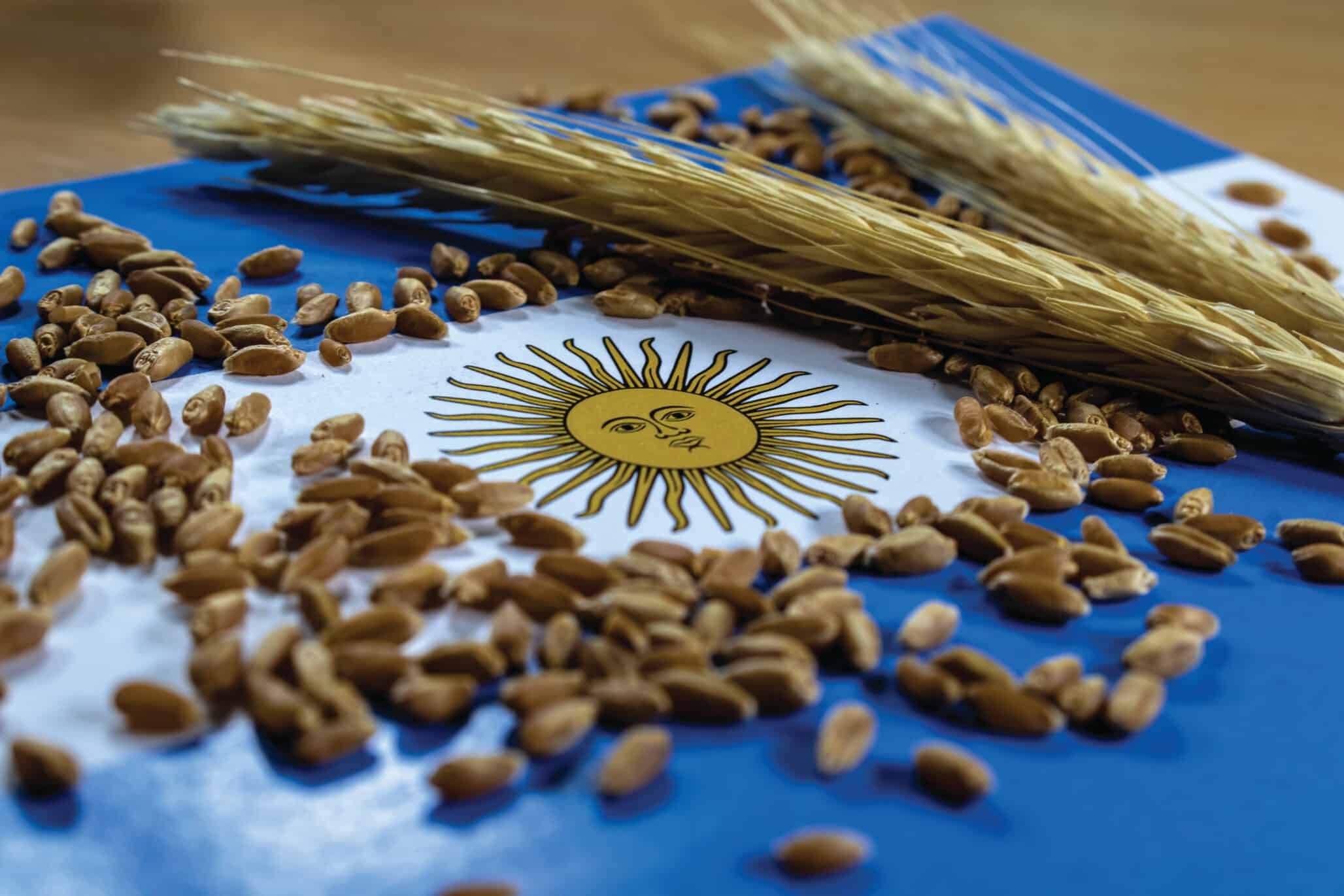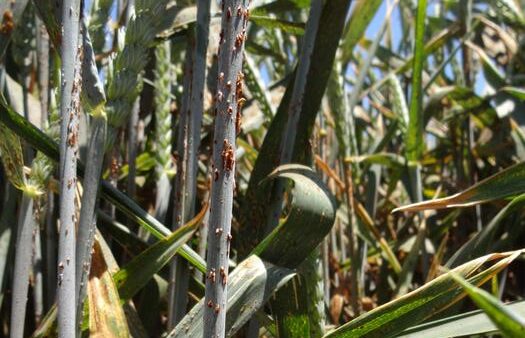UPOV 91 or not, Argentina made progress in analyzing the status of its seed legislation.
In Argentina, the recent debate regarding its adherence to the 1991 Act of the International Union for the Protection of New Varieties of Plants (UPOV 91) has been one of the most contentious and significant for its seed sector. Although Argentina did not, in the end, subscribe to this convention, the process left a series of crucial lessons for all the actors involved, from producers and seed companies to legislators and civil society.
Background
Argentina’s negotiation of its adherence to the UPOV 91 Act was debated in the context of a new government. Javier Milei, upon taking office as President of Argentina on December 10, 2023, was faced with very urgent priorities, such as high inflation and poverty. The need to address these urgencies limited the ability to discuss other priorities, such as UPOV91, in a comprehensive manner.
Just 17 days into his presidency, Milei’s government introduced a wide-ranging omnibus bill that included articles to tackle big and small urgencies, from changing taxation to whether judges should wear togas in court. Hidden among the more than 600 articles was one that would bring Argentina into UPOV 91. Multinational seed companies were hopeful, as they’d until then not been successful in their advocacy efforts to change Argentina’s seed law.
Had the bill passed, Argentina would have transitioned from UPOV 78 to UPOV 91, which would have resulted in:
- Establishing the rights and obligations of the producer regarding the reservation and use of farm-saved seeds requires adapting the national regulatory framework,
- restrictions on farmers’ rights to freely use their seeds,
- eliminate the possibility of variety patenting,
- the extension of breeders’ rights to “harvested material” where propagation materials are used without authorization,
- a requirement that new varieties bred from a PVP (Plant Variety Protection) variety feature major changes; otherwise, the new variety must be considered “essentially derived” from the PVP variety, with ownership of the new variety resting with the PVP variety’s breeder.
The project reached the final stage of the debate. First, the preliminary omnibus bill included UPOV 91. At the end of April, a provisional version with only 230 articles was approved. However, during the specific discussions, and failing to obtain the necessary approvals from Argentina’s lower house lawmakers, the government decided to withdraw the UPOV 91 Article.
Seed World LATAM sat down with three prominent leaders of Argentina’s seed sector to hear their insights into the process and the lessons learned. Their experiences and perspectives offer valuable information on the debate surrounding Argentina’s adherence to the UPOV 91 Act.
Nicolás Gear: Committed to Intellectual Property
Nicolás Gear is president of the Argentine Seed Growers Association (ASA) and Manexa. In the conversation with Seed World LATAM, Gear emphasized the importance of intellectual property in seed production and its impact on developing new phyto-genetic varieties. He highlighted how this unlocks opportunities in international markets and promotes economic growth through the development of agricultural biotechnology within Argentina. The big challenge behind the issue of intellectual property and adherence to UPOV 91, he said, is how to communicate essential aspects such as essentially derived varieties and farm-saved seeds.
Gear emphasized that “defending the rights of seed breeders’ innovation and the possibility of capturing profits for companies has been high on ASA’s agenda in recent decades.”
Lorena Basso: Uniting International and Local Perspectives
Lorena Basso, former chair of ASA’s board of directors and current second vice president of the International Seed Federation (ISF), brought a local and international perspective to the discussion. She emphasized the need to adapt to political and private changes in the sector, stressing that future adherence to UPOV 91 would be positive for the Argentine seed industry and that international openness is crucial. The implications of the agreement must be understood to align local practices with global standards.
“Through genetics, you can have a high-quality product with certain features that allow you to compete in prices or in high-value markets. It is a virtuous circle: when you have safer, more transparent, and modern environments, it attracts investment, which directly ends up benefiting the producer.”
Alfredo Paseyro: Communication and Knowledge
Alfredo Paseyro, executive director of ASA and collaborator in several working groups of the ASA, ISF, and the Seed Association of the Americas (SAA) highlighted one of the most critical lessons learned from this process: the importance of effective communication.
For him, one of the biggest challenges in the discussion around the omnibus bill was communicating the technical and political aspects of UPOV 91, which was further complicated by being just one point among the other 660 in the omnibus bill, covering a wide range of subjects.
“Every time there is a discussion about seed laws or about UPOV, it is a discussion about conflicts of interest, rather than about the benefits of taking part in a status such as UPOV 91 or OECD (…) At some point in Argentina, we will reconsider debating a seed law, but we must keep in mind what an international treaty is. The possibility of adhering means having the status of a country that receives investments that are protected, and that this results in innovation and greater economic growth, and therefore, it will be understood that UPOV 91 is good for Argentina,” he said.
The 10 Lessons Learned from the Process
1. The Importance of Open and Participatory Debate: Gear highlighted the inclusion of all stakeholders in the debate. “The participation of all actors in the value chain was demanded for the proper institutionalization of the regulation. And this process was never intended to be unilateral or constrained. It explicitly included producers and users in the regulation.”
2. The Regulation of Farm-Saved Seeds within the framework of Plant Variety Protection: Paseyro explained that “Although Argentina has a robust regulatory framework based on UPOV 91, there is confusion due to ambiguous interpretations of breeders’ rights and exceptions for the producer’s own use. The current legislation needs adjustments to resolve these discrepancies and ensure a clear regulation that benefits both breeders and producers, while respecting the cultural and economic characteristics of the agricultural sector.”
3. Cultural change towards the concept of royalties: In Argentina the high export taxes lead to an erroneous perception that royalties are another tax, which makes it difficult to adhere to UPOV 91.
Paseyro stated, “Saving and using self-produced seeds, known as farm-saved seed, is a deep-rooted cultural tradition. A cultural change is needed so that producers see the payment of royalties not as a tax but as a recognition of the innovative work behind the seeds.”
According to Basso, “If producers accepted to pay for their farm-saved seed, many issues would be solved. And although other aspects are negotiated, the regularization of farm-saved seed is essential. It all boils down to an economic issue: someone has to pay, and someone has to get paid.”
4. Impact of the tax burden on producers: Paseyro pointed out that “the high tax burden has an impact on the prices farmers earn. For soybeans, for every $100, the state keeps $33, and the producer receives $67 after the seeds are sold and exported.”
Gear added that “it becomes even more complex given the lack of transparency in how these funds are used, generating dissatisfaction among producers. The money collected is not necessarily reinvested in improvements for the agricultural sector, causing frustration and a sense of lack of return on investment among farmers.”
5. Clarity in Separating Concepts: For Basso, it is crucial to separate discussions on taxes and export duties from issues of intellectual property or farm-saved seeds. Although they seem related, they are separate issues that often get mixed up, generating confusion and misinformation, and often leading to fruitless debates. “It is important to direct the discussion towards the recognition of intellectual property and the need for clear regulations as benefits that ensure better profitability for farmers.”
6. Autonomy in Seed Production: As Paseyro explained, “Harvesting and saving seeds is a deep-rooted tradition in Argentina’s agricultural culture that is unlikely to change. Despite being an exception in UPOV 91 that countries can adhere to or not, cultural issues often prevail over the regulations. In practice, Argentine farmers consider it as a right.”
7. Need for a Clear Legal Framework: A well-defined and coherent legal framework is crucial to provide legal certainty for both breeders and farmers. Gear stressed that “In the current regulatory framework, production and breeding are included, but it does not clarify, as UPOV 91 does, whether it means for commercial purposes. This creates confusion.”
8. Innovation and Competitiveness in the Seed Industry: Intellectual property protection should encourage innovation without restricting competition, ensuring that farmers have access to quality seeds. According to Basso, an important lesson is how restrictions by foreign companies affect the quality of products imported into Argentina. “Some companies limit the shipment of high-quality products to avoid copying, leaving the Argentine market with inferior options. This problem could be solved with better regulation, allowing an improvement in the quality of imported seeds.”
9. International Cooperation for Productive Growth: While it is beneficial to align with international standards, policies must be tailored to the country’s specific conditions and needs. According to Gear, Argentina should see this as both a challenge and a source of pride, as joining UPOV 91 can boost agricultural production. The modernization of the regulatory framework, carried out with the participation of producers and users, is essential for improving the seed sector.
10. Continuing Education and Training: For Paseyro, one important lesson is the need to continue bringing visibility to the significance of adhering to UPOV 91, having a strategy of liaison and negotiation with users while being aware of their different positions, and continuing to educate on the technical issues involved to ensure that they have all the necessary arguments to face this negotiation.
What was Achieved Because of the UPOV 91 debate
Though UPOV 91 was not passed in Argentina, the debate did bring about some valuable results. Paseyro highlighted six important benefits:
1. Visibility of the issue: Although the issue was not resolved, it was placed in the public agenda.
2. Broad Support: The adherence bill was supported by 31 chambers, an unprecedented achievement for this debate.
3. Involvement of Authorities: Yolanda Huerta, Deputy Secretary General of UPOV and INASE authorities showed their willingness to get involved and discuss the issue with users.
4. Participation of Senior Officials: The Secretary of Agriculture, with ministerial rank, presented arguments before the Commission of Lower House of Representatives, something that had never happened before.
5. Support from INTA: The National Institute of Agricultural Technology (INTA) got involved with a positive stance.
6. Participation of both growers and breeders in this debate.
Benefits of Argentina’s Adherence to UPOV 91
Basso, Gear and Paseyro remain hopeful that Argentina will adopt improved seed laws eventually. Adhering to UPOV 91 would offer multiple benefits.
According to Paseyro, shifting to UPOV 91 would position the country favorably at the international level, attracting foreign investment by providing clarity and confidence in intellectual property protection.
Basso pointed out that UPOV 91 creates a more secure and transparent environment for investment in agricultural research and development, making it possible to duplicate the productivity of some varieties and add competitive improvements. This generates a virtuous circle of investment and direct benefits for agricultural producers.
Gear stressed that UPOV 91 would ensure that increased investment in agricultural technology will yield more competitive crops, facilitating returns on investment. This would align with Argentina’s 1973 Law that promotes the efficient production and protection of plant breeding achievements. Economic benefits include higher yields and better-quality seeds for producers. Without this adherence, Argentina could become a user rather than a developer of agricultural technology.
Looking Forward
Argentina is uniquely positioned to use these lessons and develop a fair, innovative, sustainable agricultural and seed system. While these efforts were insufficient to achieve Argentina’s adherence to UPOV 91 this time, they are valuable precedents that show significant progress and establish a foundation upon which to build.
Basso, Gear, and Paseyro agree that the road ahead demands a strategic vision, meticulous implementation, and a steadfast commitment to promoting innovation, competitiveness, and international cooperation, fundamental aspects that must steer the sector’s future development. By doing so, the country will be able to ensure a prosperous and sustainable future for the agricultural sector and future generations.











